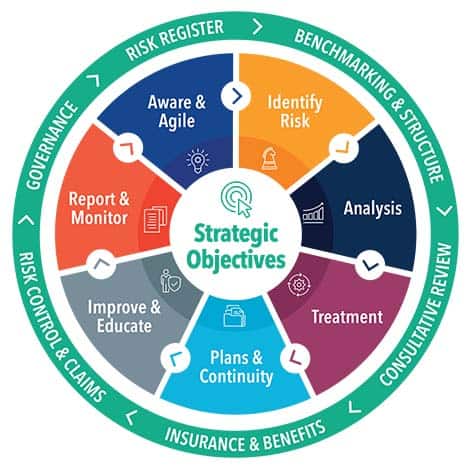
Globally, the International Sustainability Standards Board (ISSB) was formed in November 2021 alongside the International Accounting Standards Board (IASB). In a span of mere 20 months later, in June 2023, ISSB issued IFRS S1 General Requirements for Disclosure of Sustainability-related Financial Information and IFRS S2 Climate-related Disclosures from financial years commencing in 2023 or 2024, as applicable.
Around the about the same time in July 2023, the Accounting and Corporate Regulatory Authority (“ACRA”) and Singapore Exchange Regulation (“SGXRegCo”) launched a public consultation on the recommendations by the Sustainability Reporting Advisory Committee (“SRAC”), to advance climate reporting in Singapore.
Globally over 70 countries have set a net-zero target, covering over 80% of global emissions. The Millennial generation is rapidly growing as the new investors base and likely to direct their capital towards opportunities that holistically earn returns, directly or indirectly contribute to ESG global initiatives, and align with their personal values.
What lies beneath is swathe of local and international ESG-related regulations, investment decisions, governmental and social expectations. With Task Force on Climate-related Financial Disclosures (TCFD) reporting requirements on the horizon, Companies must be adequately prepared to anticipate, analyse and implement this sea change of ESG-related regulatory compliance activities that weave into their organisational structure, policies and business models.
TCFD reporting is designed to solicit decision-useful and forward-looking information on financial impacts, adoptable by all organisations, with risks and opportunities focus on transition to lower-carbon economy. Tangible ESG reporting benefits are better long-term business growth, greater access to funding, stronger appeal to sustainability-conscious consumers and attract young talents.
As companies manage their own decarbonisation transition in order to capture opportunities in green economy, here are some key actions that will help to accelerate the adaptation process.
Re-Organise
Accelerating decarbonization begins in the boardroom, developing a strategy which is practical and deliverable by the organization, without compromising commercial objectives. As a first step in ESG integration into your corporate strategy, it is essential to setting up a sustainability task force to ensure there are nuanced discussions around ESG or green agenda and a roadmap can then be formulated to reach certain ESG milestones or targets within practical time frames.
As with financial accounting and reporting, generally accepted Greenhouse Gas (GHG) accounting principles are intended to underpin and guide GHG accounting and reporting to ensure that the reported information represents a faithful, true, and fair account of a company’s GHG emissions. This GHG Protocol has established GHG emissions classification system that allows for businesses to track direct and indirect GHG emissions. GHG accounting and reporting shall be based on the following principles:
|
GHG Principles |
Brief Descriptions |
|
Relevance |
Ensure the GHG inventory appropriately reflects the GHG emissions of the company and serves the decision-making needs of users – both internal and external to the company. |
|
Completeness |
Account for and report on all GHG emission sources and activities within the chosen inventory boundary. Disclose and justify any specific exclusions. |
|
Consistency |
Use consistent methodologies to allow for meaningful comparisons of emissions over time. Transparently document any changes to the data, inventory boundary, methods, or any other relevant factors in the time series. |
|
Transparency |
Address all relevant issues in a factual and coherent manner, based on a clear audit trail. Disclose any relevant assumptions and make appropriate references to the accounting and calculation methodologies and data sources used. |
|
Accuracy |
Ensure that the quantification of GHG emissions is systematically neither over nor under actual emissions, as far as can be judged, and that uncertainties are reduced as far as practicable. Achieve sufficient accuracy to enable users to make decisions with reasonable assurance as to the integrity of the reported information. |
At this stage, the assessment includes ESG maturity matrix, benchmarking against peers and best practices, ESG opportunity identification and active stakeholder engagement.
Curating an effective ESG strategy
After completing a full ESG diagnostic, overall ESG ambitions, priorities and objective will start to formulate. These will set the foundation for an ESG strategy and roadmap. Each company’s roadmap starting point may be different, however, it is important to be realistic in terms of the timeline of each phase. Some of key pointers are as follows:
- Establish a clear ESG Scorecard: Identify the most relevant ESG factors for your business and set specific, measurable, and achievable objectives aligned with your company’s overall strategy, goals and cultures;
- Develop an effective Roadmap: Create a detailed action plan outlining how to achieve your ESG objectives and timelines, ensuring integration across regions, business units and functions globally; and
- Integrate ESG into Decision-Making processes: Incorporate key ESG considerations into your company’s decision-making processes and cultures, from business development to daily operations levels.
Implementing ESG strategy and Governance
An ESG roadmap is constantly evolving where new priorities keep unfolding, new challenges may arise and stakeholder interests may shift. Hence, it is important to perform ESG diagnostics periodically and ensure that roadmap is effective and consistent in meeting the demands and expectations of all stakeholders. Companies can operationalise sustainability and catalyse systemic action. Some of best practices are as follows:
- Create Corporate ESG Accountability: Chief Sustainability Officer (CSO) or teams to take charge of ESG objectives and priorities, ensuring transparent responsibility and reporting mechanisms;
- Evaluate, Track, and Control ESG Performance and Reporting: Regularly review and analyze progress against ESG objectives and established timelines, by conducting necessary modifications and corrective actions to ensure continuous improvement across all levels of business and alignment with the strategic objectives; and
- Developing deep skills – job redesign and redeployment by equipping young talents with sustainability themed courses.
Finally, PWCO ESG team helps companies create long-term value by significantly simplifying and easing the challenges and complexities associated with adopting and integrating ESG principles into your organization. Let’s work together towards a sustainable and prosperous future.










